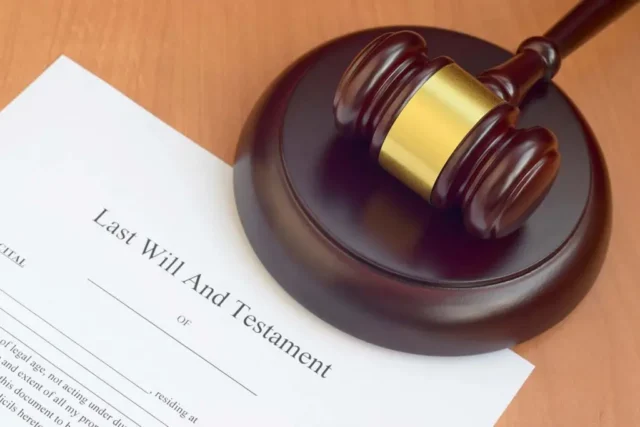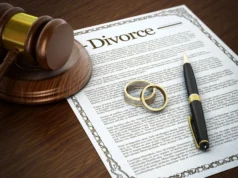
Are you looking to write a will without a lawyer? You’re not alone! Many people who have a smaller estate choose to go the DIY route in safeguarding their assets. But navigating the legal jargon and making sure your wishes are properly written can be daunting.
Introduction: Writing a Will Without a Lawyer
Writing a will, which is a legal document that expresses your wishes for the distribution of your assets and personal belongings in the event of your death, is an important task that all adults should undertake. You should be aware of legal actions after your death, for example, what happens to 401k when you die.
In some cases, hiring a lawyer to help you write a testament can cost hundreds or even thousands of dollars. However, many people opt to write their wills using online services or templates without the assistance of an attorney.
If you choose to create a testament without a lawyer’s help, it’s important to understand all the legal aspects of writing and executing documents. Doing so can ensure that your wishes get carried out according to plan in the event of your death.
What to Include
While laws vary among jurisdictions, there are certain universal elements that should be included in a Will. Understanding these elements helps ensure your wishes or intentions will be carried out.
- Personal Information: Include your full legal name, address, and Social Security Number. You should also include the names of any beneficiaries or persons who will be receiving assets upon your death.
- Appoint an Executor: The executor is the individual you choose to implement the terms of the Will and manage your estate. Your executor should preferably have some expertise in accounting and/or law so that taxes can be paid properly and other administrative duties can be handled with precision.

- Divvy Up Your Assets: Be sure to provide specific instructions pertaining to how you would like your assets divided among individuals or organizations outlined in the testament (some people like to provide percentages). Be as detailed as possible when providing instructions for goods (jewelry collections, books, etc.). Otherwise, these goods may end up in another’s hands due to misunderstandings about ownership.
- Minor Beneficiaries & Guardianship: Establish legal guardians for minor children in case both parents are unable to care for them at any given time after your death, whether due to death or any other cause. Direct assets such as life insurance payouts or investments towards helping those minors attain a good education until they reach adulthood if desired. (This depends on state laws)
- Include Nicknames: Incorporate nicknames or alternate spellings of names under “alias” or “AKA” when describing beneficiaries in order to reduce confusion down the line later on (Taylor & Tayla etc.)
- Sign & Notarize It: Finally, both signing parties must sign before witnesses are notarized by a court official formerly appointed by their state legislature (depending on the state).
Legal Requirements for a Valid Testament
A valid will outlines your wishes so that your assets can be handled according to your wishes after you pass away. When writing one, you should take into consideration the legal requirements and make sure it meets all necessary criteria.
For a testament to be legal and valid in most states, it must meet certain criteria:
- It must be in writing
- You must be at least 18 years old when signing the document
- It must be signed by two witnesses who were present when you signed the will (three witnesses in some states)
- The witnesses cannot benefit from the estate or they may invalidate the document
- The document must not contain any false information
- It must be dated at least one day prior to signing

If any of these elements are missing, it means that your will is not legally binding. A lawyer can help ensure that everything meets the required legal standards so that your wishes are executed without delay or confusion once you pass away.
Mistakes to Avoid
An improperly drafted Will can lead to costly legal challenges as well as unnecessary tax consequences. To protect yourself and your beneficiaries from undue financial liability, it is important to understand the common mistakes made when writing a Will without a lawyer.
Below are some mistakes to avoid:
- Not Appointing An Executor – When writing a Will, it is essential that you appoint an Executor who will be responsible for carrying out the instructions in your testament. Without an Executor, your assets will not be distributed according to your wishes, and further delays in transferring property and assets could occur.
- Not Updating Your Testament Regularly – Your life circumstances may change over time; therefore, it is important to update your Will on a regular basis. If changes are not made regularly, then certain aspects of your estate may not be properly dispersed or accounted for.
- Disinheriting Close Family Members – Including close family members in your Will assists them in avoiding costly legal challenges after you have passed away. Intentionally disinheriting any family member can leave them feeling betrayed and hurt and could also trigger expensive court proceedings.
- Failing To List All Beneficiaries & Property Assets – It is essential that all beneficiaries and property assets are listed accurately. Leaving out any relevant information can negatively affect the distribution of the estate or unintentionally exclude individuals intended to receive specific items from one’s estate upon death.

- Not Finishing With A Valid Signature – To ensure all conditions detailed in the will are properly enforced upon death, each document must contain proper signatures from both you as the testator (maker) of the will as well as two witnesses who can testify that you wrote this document willingly and without misguidance or coercion by another party.
Conclusion
A will is a vital estate-planning tool that allows you to decide where your assets and property will go after your death. Although courts usually accept valid self-prepared wills, it’s important to be aware of the risks that come with writing a will without consulting a lawyer. This includes the potential for errors in format or content and misunderstandings of state laws.
If you do choose to write your own will, make sure to clearly explain intentions in written language and include appropriate witnesses if necessary. Additionally, store a completed copy safely and consider having a lawyer double-check it for accuracy before signing off on it. With adequate information and preparation, there is no reason not to feel confident about preparing your own last will and testament.













